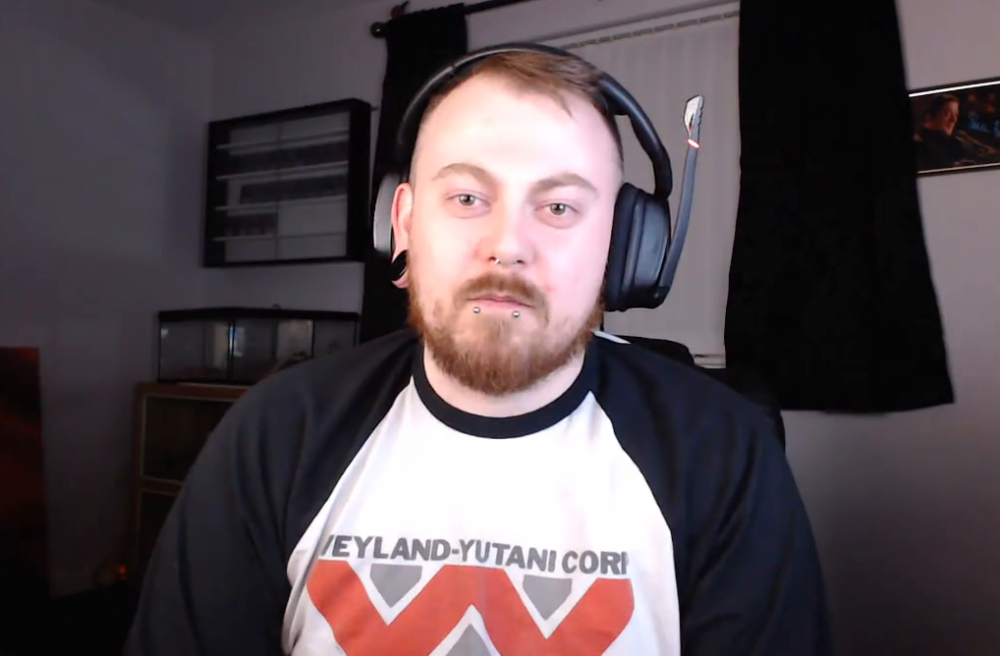Mark Meechan, the Scottish man behind the now infamous video of a pug performing a ‘Nazi salute’, has been fined £800 by the courts.
The case has stirred considerable controversy, with many feeling that Meechan’s conviction is an unacceptable infringement of his right to free speech.
At first glance, one might assume that the judge who found Meechan guilty simply misapplied the law and ‘got it wrong’. It seems absurd that our laws could dictate that a person face criminal sanctions for making a joke – albeit one in very poor taste – that neither harmed anyone nor incited such harm.
Yet closer inspection of the criminal offence under which Meechan was convicted reveals that, frighteningly, the judge got it absolutely right, and that our speech isn’t so ‘free’ after all.
But First, Some Background…
 Meechan’s girlfriend’s pug, ‘Buddha’. Image Credit: Joseph Roman / Flickr.
Meechan’s girlfriend’s pug, ‘Buddha’. Image Credit: Joseph Roman / Flickr.
In April 2016, Meechan, who uses the alias ‘Count Dankula’ on YouTube, uploaded a video of his girlfriend’s pug ‘Buddha’ raising its paw in response to statements such as “Sieg Heil” and “gas the Jews”.
The video opens with Meechan explaining: “My girlfriend is always ranting and raving about how cute and adorable her wee dog is, and so I thought I would turn him into the least cute thing that I could think of, which is a Nazi.”
But Sheriff Derek O’Carroll, who found Meechan guilty of an offence under the Communications Act, was not convinced. He found that Meechan had uploaded the video in order to drive traffic to the other videos on his page, and “knew that the material was offensive and knew why it was offensive.”
My girlfriend is always ranting and raving about how cute and adorable her wee dog is, and so I thought I would turn him into the least cutest thing that I could think of, which is a Nazi.
Mark Meechan
He said that the description of the video as humour was “no magic wand”, and that although the right to free expression was considered by the court, that right “also comes with responsibility.” Meechan plans to appeal the decision.
‘Grossly Offensive’
 Stock Image Credit: Unsplash.com.
Stock Image Credit: Unsplash.com.
Meechan was convicted of an offence under Section 127 of the Communications Act 2003, which states: ‘A person is guilty of an offence if he sends by means of a public electronic communications network a message or other matter that is grossly offensive or of an indecent, obscene or menacing character’.
Two elements must be proved for a person to be convicted of this offence:
- A message, which is grossly offensive, must be sent electronically; and
- The person sending the message must either intend his or her words to be grossly offensive, or be aware that they may be taken to be so.
In this context, ‘gross offence’ is to be judged by applying “reasonably enlightened, but not perfectionist, contemporary standards to the particular message sent in its particular context” (as per the House of Lords in Collins).
Applying this test, there is little doubt that Sheriff O’Carroll was entitled to find Meechan guilty. It is hard to argue with the conclusion that the video was grossly offensive according to contemporary standards, and this does not change simply because Meechan intended it to be humorous. After all, humour is subjective, and what is funny to one person may be highly offensive to another.
It also does not matter that Meechan did not intend to cause gross offence by posting the video, as he was found to have been aware that it may be grossly offensive to certain people.
Ok, So Why Is This a Problem for Free Speech?
 Image Credit: Unsplash.com.
Image Credit: Unsplash.com.
Article 10 of the Human Rights Convention protects our right to free expression, including the “freedom to hold opinions and to receive and impart information and ideas without interference by public authority”. But it is also a ‘qualified right’, meaning that it can be legitimately interfered with by the government in certain circumstances – for example, for the protection of the rights of others.
However, any measure which purports to limit our free speech – such as the offence under which Meechan was convicted – must be ‘prescribed by law’. Crucially, this means that it must be sufficiently precise to enable citizens to stay within the law, and must not provide a mechanism for a person’s free speech to be arbitrarily interfered with.
The offence in s127 of the Communications Act categorically fails to do this. ‘Gross offence’, the concept upon which guilt depends, is simply incapable of precise and objective definition. What does it mean to be ‘offended’? What are the ‘contemporary standards’ against which offensiveness is to be judged? Where is the line between merely ‘offensive’ and ‘grossly offensive’? The answer to all of these questions is that it depends entirely on the opinions of the judge or jury who decide the case.
This is hugely problematic for two reasons. First, it makes it impossible for anyone to predict whether they might be guilty of a criminal offence for something they share online. Second, and more worryingly, it opens the door to unpopular or dissenting opinions being silenced for falling afoul of dominant prevailing views. And as history shows, the views of the majority are not always a good indicator of what is right.
The Right to Offend
 Image Credit: Unsplash.com.
Image Credit: Unsplash.com.
At a more general level, we have to consider whether offensive speech should be criminalised at all. We all might accept that it is ‘wrong’ to be grossly offensive, but should it be criminal?
Broadly speaking, our criminal laws are designed to deter and punish actions which cause or are likely to cause harm to people and their property. This includes certain forms of speech – such as harassment, incitement and threats – which can cause psychological harm, and often, if left unchecked, lead to physical violence. This behaviour is criminal not because of what is said, but because of the propensity that it has to cause harm to others.
The offence under s127 of the Communications Act is completely different. Guilt is wholly dependent on the ‘offensive’ character of the material posted, rather than the effect it has or may have on others. In fact, the offence can be committed even if no-one actually sees or is offended by the material! And even if someone is offended, it is difficult to see what ‘harm’ they have suffered.
In Handyside v United Kingdom, the Human Rights Court said that free speech applies “not only to ‘information’ or ‘ideas’ that are favourably received or regarded as inoffensive …, but also to those that offend, shock or disturb the State or any sector of the population”. As a society, we can and should challenge those who express ideas that are deeply offensive. We should not, however, use the force of the law to silence them.







